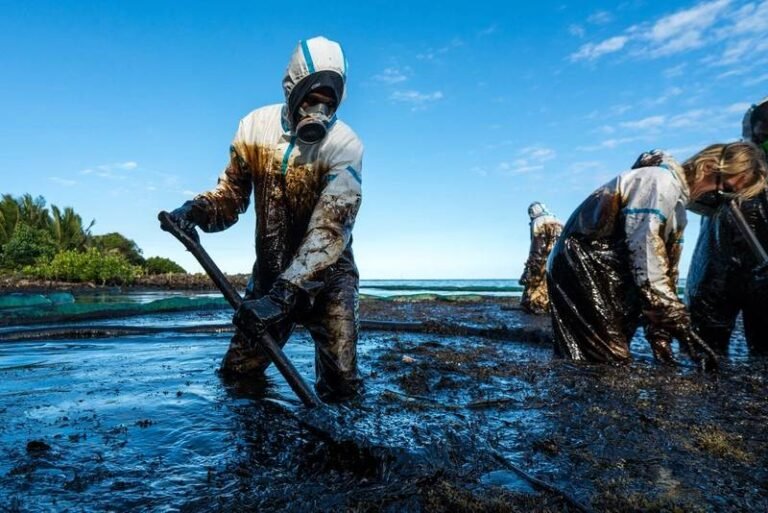Guyana Introduces Oil Pollution Bill to Hold Responsible Parties Accountable
Guyana’s government has taken a significant step towards strengthening oversight of its burgeoning energy industry by submitting an oil pollution bill to the Parliament. The bill aims to make responsible parties liable for damages caused by oil spills, particularly those originating from vessels operating in the country’s offshore fields.
The South American nation, which is on track to surpass 900,000 barrels per day in oil production this year, has entrusted a consortium led by Exxon Mobil with the management of its oil reserves. With all crude and gas output coming from offshore fields, Guyana is keen on ensuring that stringent regulations are in place to safeguard its environment and natural resources.
Under the proposed legislation, responsible parties will be required to provide financial assurance to cover potential spills, conduct regular inspections and audits, and promptly address any issues identified. Non-compliance with these regulations could result in penalties, including the suspension of exploration and production licenses.
Guyana, a country committed to achieving net-zero carbon emissions, strictly prohibits routine flaring from vessels involved in oil and gas production offshore. With over 80% of its landmass covered by forest, the nation is determined to balance economic development with environmental preservation.
Having emerged as Latin America’s fifth largest oil exporter last year, Guyana is poised for further growth in its energy sector. The Exxon-led consortium, comprising U.S.-based Hess and China’s CNOOC, reported a 3% increase in oil production in the first quarter of this year, reaching an average of 631,000 barrels per day.
The proposed oil pollution bill also seeks to empower the country’s Oil Spill Committee with enhanced responsibilities to oversee the industry and coordinate responses to any potential spills. This proactive approach underscores Guyana’s commitment to sustainable energy practices and environmental stewardship.
(Source: Reuters – Reporting by Kemol King; writing by Marianna Parraga; Editing by Leslie Adler and Marguerita Choy)

